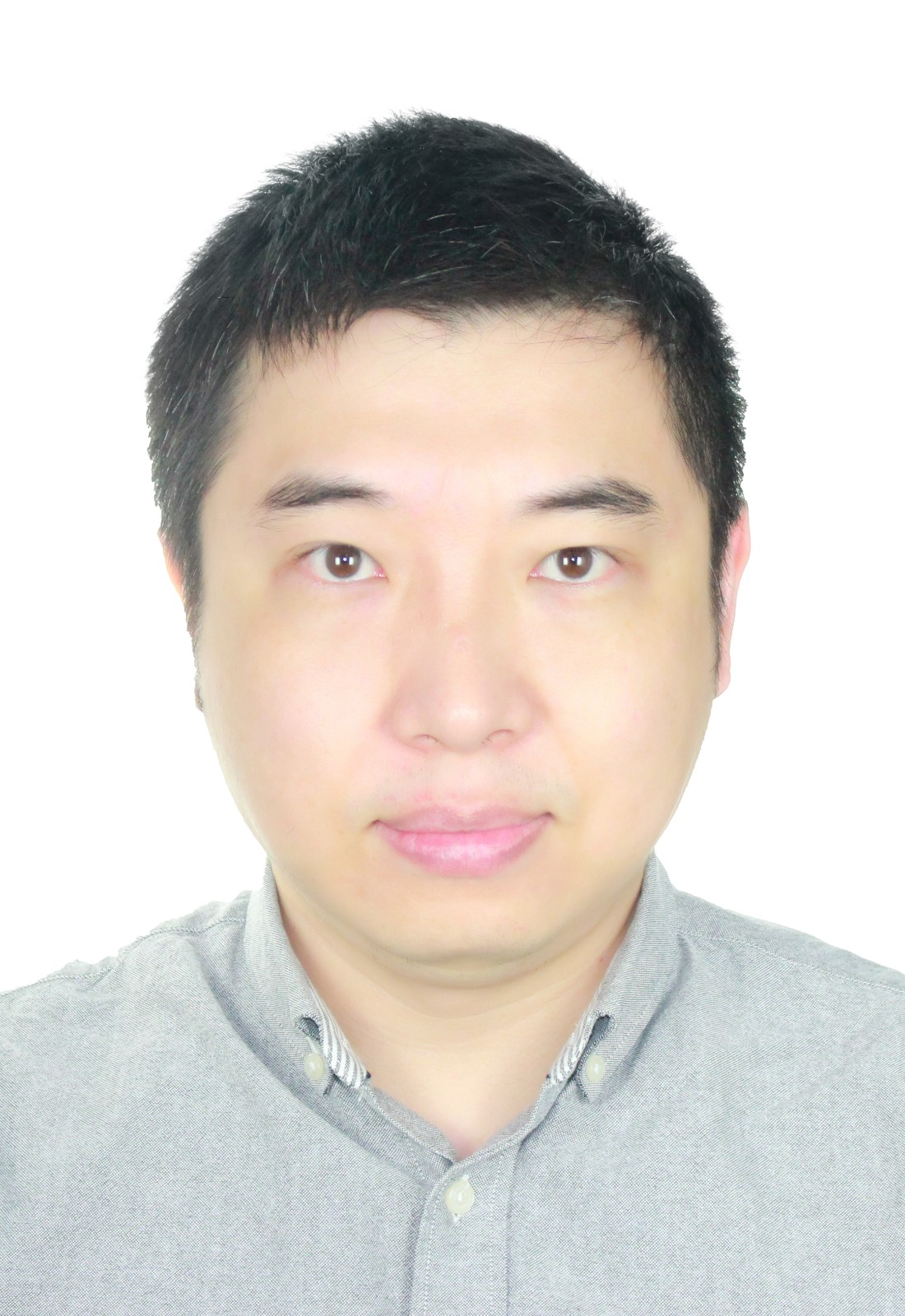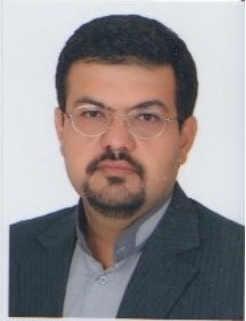
Speakers
SPEAKERS |
Prof. Pingyi Fan Tsinghua University,China | Dr. Pingyi Fan is a professor of the Department of Electronic Engineering of Tsinghua University. He received Ph.D. degree at the Department of Electronic Engineering of Tsinghua University in 1994. From 1997 to 1999, he visited the Hong Kong University of Science and Technology and the University of Delaware in the United States. He also visited many universities and research institutes in the United States, Europe, Japan, Hong Kong and Singapore. He has obtained many research grants, including national 973 Project, 863 Project, mobile special project and the key R&D program, national natural funds and international cooperation projects. He has published more than 190 SCI papers (more than 130 IEEE journals), and 4 academic books. He also applied for more than 30 national invention patents, 5 international patents and. He won seven best paper awards of international conferences, including IEEE ICC2020 and Globecom 2014, and received the best paper award of IEEE TAOS Technical Committee in 2020, the excellent editor award of IEEE TWC (2009), etc. He has served as the editorial board member of several Journals, including IEEE and MDPI. He is currently the editorial board member of Open Journal of Mathematical Sciences, the deputy director of China Information Theory society, the co-chair of China's 6G-ANA TG4, and the chairman of Network and Communication Technology Committee of IEEE ChinaSIP. His current research interests are in 6G wireless communication network and machine learning, semantic information theory and generalized information theory, big data processing theory, intelligent network and system detection, etc. Title: Federated Learning Via Local Resampling Processing Abstract: As a distributed learning architecture with data isolation training and user privacy protection mechanism, federated learning has received extensive attentions from academia and industry. However, thanks to its data-driven model, federated learning still faces the common challenges of the data-driven learning models, i.e. the heterogeneity of multiuser data, the heterogeneity of different devices and the diversity of communication channels as well as the imbalance and correlation of multi-category data distributions etc. In this talk, we shall introduce a new personalized data resampling technique. We first introduce a centralized mode data learning model under the general model, and use it as a benchmark to give the theoretical performance upper bound of the data resampling mode under the federal mechanism. Based on the theoretical limit, we formulate an optimization problem for personalized data processing, and use the principle of water-filling in information theory to derive the explicit expression of the optimal resampling weights. Then database test is used to verify the effectiveness of the theoretical scheme, and some system design principles of theoretical interpretability are also given. Finally, we give a summary and point out the potential application scenarios of this new developed approach. |
Prof. Liang Hu Tongji University, China | Dr Liang Hu is a full professor with Tongji University and also Chief AI Scientist with DeepBlue Academy of Science, China. His research interests include recommender systems, machine learning, data science and general intelligence. He has published a number of papers in top-rank international conferences and journals, including WWW, IJCAI, AAAI, ICDM, ICWS, TOIS, IEEE-IS. He has been invited as the program committee of more than 30 top-rank AI international conferences, including AAAI, IJCAI, ICDM, CIKM, and KDD. He also serves as the reviewer of more than ten AI and data science-related international journals, including ACM CSUR, IEEE TKDE, ACM TOIS, IEEE TPAMI, etc. In addition, he has presented eight tutorials on recommender systems and machine learning at top-rank AI conferences including IJCAI, AAAI, SIGIR, and ICDM. Title: From The Emergence of Large Language Models to Foresee the Future Challenges and Evolution Abstract: With the advent of ChatGPT in 2023, large language models (LLMs) have swept all fields and have become the synonym of artificial intelligence (AI). Many AI manufacturers and research institutions around the world have been eager to launch their own LLMs, so as to occupy the current AI highland. In this talk, we will analyze the emergence of LLMs and the non-language models such as visual models are still faltering and far from the emergence. In addition, this talk will also provide insight into the future development trend of large AI models through some revelations from the natural world, and will analyze the evolution of human work related to large AI models along with the development of large AI models. |
Prof. Philippe Fournier -Viger IEEE Senior Member Shenzhen University, China | Philippe Fournier-Viger (Ph.D) is a Canadian researcher, distinguished professor at Shenzhen University (China). Five years after completing his Ph.D., he came to China in 2015 and became full professor after receiving a talent title from the National Science Foundation of China. He has published more than 375 research papers related to data mining algorithms for complex data (sequences, graphs), intelligent systems and applications, which have received more than 13,000 citations. He is the founder of the popular SPMF data mining library, offering more than 250 algorithms to find patterns in data, cited in more than 1,000 research papers. He is former associate editor-in-chief of the Applied Intelligence journal and has been keynote speaker for over 20 international conferences and co-edited four books for Springer. He is a co-founder of the UDML, PMDB and MLiSE series of workshops held at the ICDM, PKDD, DASFAA and KDD conferences. Title: Advances and challenges for the automatic discovery of interesting patterns in data Abstract: Intelligent systems and tools can play an important role in various domains such as for factory automation, e-business, and manufacturing. To build intelligent systems and tools, high-quality data is generally required. Moreover, these systems need to process complex data and can yield large amounts of data such usage logs, images, videos, and data collected from industrial sensors. Managing data to gain insights and improve these systems is thus a key challenge. It is also desirable to be able to extract information or models from data that are easily understandable by humans. Based on these objectives, this talk will discuss the use of data mining algorithms for discovering interesting and useful patterns in data generated from intelligent systems and other applications. The talk will first briefly review early study on designing algorithms for identifying frequent patterns. Then, an overview of recent challenges and advances will be presented to identify other types of interesting patterns in more complex data. Topics that will be discussed include high utility patterns, locally interesting patterns, and periodic patterns. Lastly, the SPMF open-source software will be mentioned and opportunities related to the combination of pattern mining algorithms with traditional artificial intelligence techniques for intelligent systems will be discussed. |
Assoc. Prof. Ata Jahangir Moshayedi Jiangxi University of Science and Technology, China | Dr Ata Jahangir Moshayedi, Associate professor at Jiangxi University of Science and Technology, China, PhD. In Electronic Science from Savitribai Phule Pune University, India. IEEE member, Instrument Society of India as a Life Member, Lifetime Member of Speed Society of India, member of the editorial team of various conferences and journals like; International Journal of Robotics and Control, JSME, Bulletin of Electrical Engineering and Informatics, International Journal of Physics and Robotics Applied Electronics, etc., 80 papers published in national journals and conferences, 3 books published, Owns 2 patent, 9 copyright. His research interest includes: Robotics and Automation/ Sensor modelling /Bio-inspired robot, Mobile Robot Olfaction/Plume Tracking, Embedded Systems / Machin vision-based Systems/Virtual reality, Machine vision/Artificial Intelligence. Title: From Equations to Odor Recognition: Navigating the Complexities of Gas Sensor Modeling for Cutting-edge Electronic Nose Design (Enose) Abstract: Gas sensors serve a pivotal role across diverse applications, spanning household to industrial domains. More recently, their evolution into electronic noses (E-noses) has expanded their utility, even enabling the identification of individuals infected with the coronavirus. The behavior of these sensors profoundly impacts system modeling. Thus, the quest for mathematical models capable of encapsulating sensor responses comprehensively across various environments and scenarios becomes imperative. Within this realm, one of the primary challenges lies in formulating mathematical models, an endeavor that has grown increasingly intricate with time. Regrettably, many proposed equations have fallen short of translating into practical performance, contributing to mounting confusion among researchers. In this talk, the aim is to introduce concise modeling equations tailored for metal oxides, drawing from practical observations and meticulous data extraction. The proposed mathematical equation seeks to streamline model parameters in response to fluctuations in temperature, humidity, and gas density variations. This approach aims to enhance the precision of simulating sensor behavior, consequently yielding a more refined and prompt response. |



